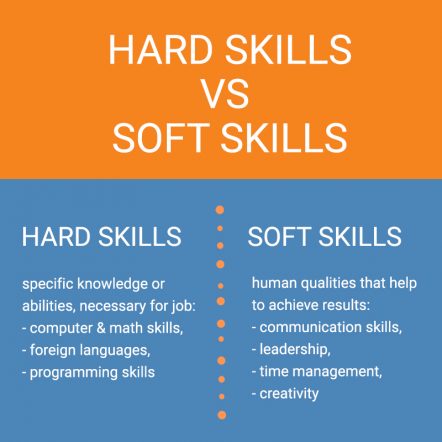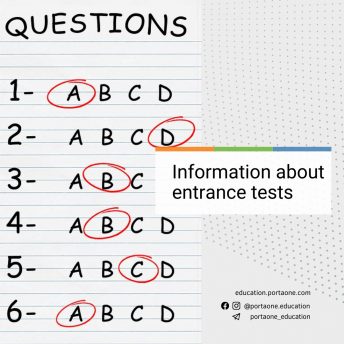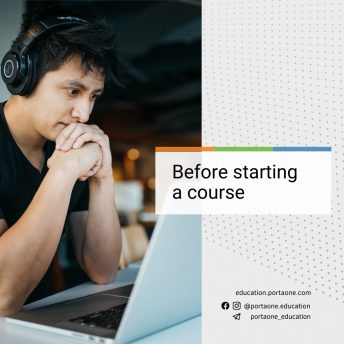You are evaluated by two criteria during the interview:
– Hard skills or your professional skills: education, knowledge of technology, work experience.
– Soft skills or general human qualities that help you to achieve results: communication skills, ability to learn quickly and work under stress, time management, responsibility and so on.
Don’t think that hard skills is our main priority. HR-specialists admit that the soft-skills of candidates are even more important to them than professional skills.
How do we test your hard skills? Here are a few of the most common tasks that you may encounter at the interview.
1) Theoretical questions to test the basic knowledge which show if a candidate will be able to work with the product and technologies.
2) Programming languages, frameworks. These questions are especially relevant for developers: they demonstrate, roughly speaking, the mastery of the tools.
3) Application tasks show the way of thinking of a person and what experience he/she has.
4) Search for information on the Internet. We wrote about the importance search skills in the series of articles #googleinarightway.
5) The ability to find out the statement of the problem. Sometimes in the interview the task is vaguely worded to test whether the candidate is able to think critically and articulate specific requirements.
6) Practical experience. Even if you are applying for your first job or for a new specialty, you should be ready to talk about your experience in the field. Think what you can say about your responsibilities in the previous project (or training project) or about your relationships with colleagues.
In general, it is more or less clear how to successfully present your professional skills and experience. When it comes to soft skills, it might be challenging. You can’t sell what you don’t have. No one will ask you: Are you easy-going, responsible, initiative? They will make judgments about your personality from your work experience and even your hobbies and likes. They can ask you questions that are completely irrelevant to the job: about the people who inspire you, about your professional mistakes, and the most difficult tasks you had to solve.
What software skills are most often checked:
1) Communication skills. It’s not just about the ability / desire to communicate with others, but more about whether the candidate is good at asking questions, voicing his point of view reasonably.
2) Self-sufficiency. Your ability to solve problems independently, propose solutions, and take responsibility for your own actions is of great value.
3) A team player. Your ability to cooperate and interact with others is of utmost importance for achieving results.
4) Stress resilience and flexibility. It is about your ability to work under pressure, adapt to new conditions, not to lose purpose and self-control.
5) Dealing with conflict is one of the most important markers for any position to work in a team. No one wants to interact with a person who blames others for all the troubles, get emotional when sharing their opinion, and get personal instead of jointly solving the tasks.
Here are a few suggestions that can be useful for interview:
– Google popular job-related question and prepare your answers
– Find the information about the company: what products it makes, for which markets, and what values it communicates
– Ask former employers for references. Even if you are looking for a job in a new field, you will need references from colleagues so that the interviewer could evaluate your soft skills.
– You will have an advantage over other candidates, if you have any experience related to your future job. For example, if you apply for a position of a system administrator, telling about how you built a personal VPN-server for your grandmother will increase your chances of getting a job.
– Study and don’t forget to put diplomas and certifications on your resume.
– It’s good if you have a profile on at least one of the social networks that you can show the employer. It should reflect your professional development. LinkedIn is perfect for this.
To chill out and recharge your batteries, here’s a set of movies about job seeking. There’s a lot to think about!




